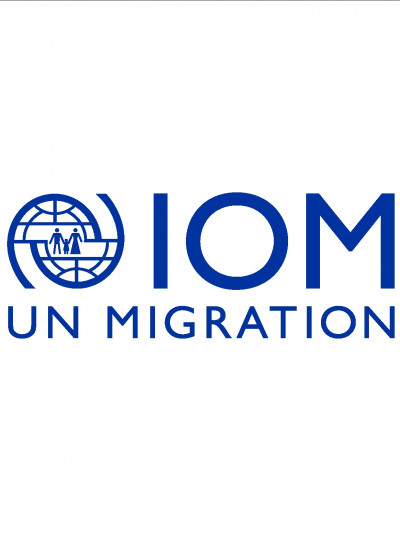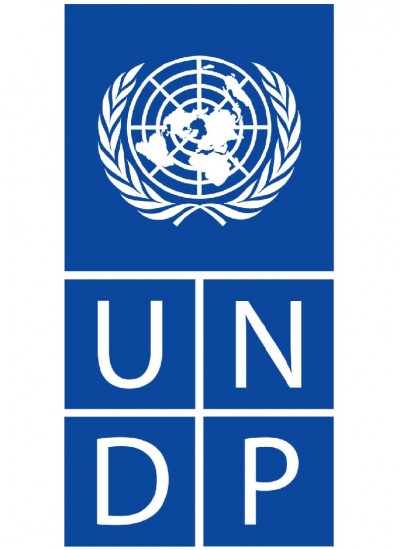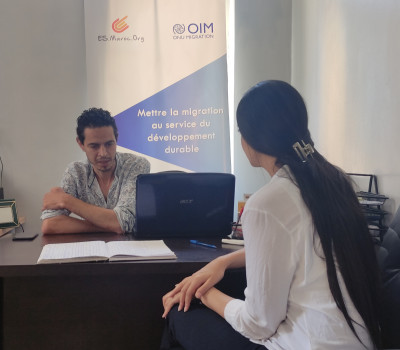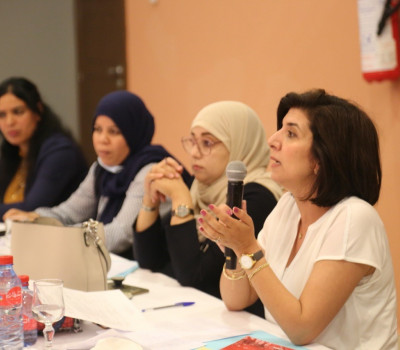Morocco is a country of departure, transit and destination, making it a key country on the Western Mediterranean Route. In December 2014, the government adopted the first National Immigration and Asylum Strategy (SNIA) with 11 priority areas (including education, health, housing, social protection, employment, human trafficking, international cooperation, governance, etc.). This migration policy has led to concrete actions, such as the two regularization campaigns that took place in 2014 and 2017 and helped nearly 50,000 irregular migrants gain access to residency permits. A Strategy for Moroccans Residing Abroad (MRE) is also available to address issues related to the Moroccan diaspora.
During the COVID-19 pandemic, the country also welcomed many returning migrants with particular sustainable reintegration needs and put in place in coordination with different stakeholders (for example, associations, IOM, international cooperation and UN network) strategies and several initiatives to meet the needs of migrants at national levels. Migration therefore plays a key role in achieving Morocco’s sustainable development priorities around creating decent employment, especially for youth, reducing inequalities and mitigating social vulnerabilities. To address these crucial development challenges, the Programme prioritizes two sectors: employment and health.
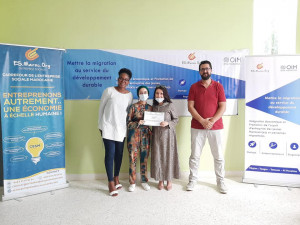
In this context, the Programme implements two local-level projects, in Tanger-Tétouan-Al Hoceïma and Oriental regions. In Tanger-Tétouan-Al Hoceïma, the Programme supports employment and livelihood opportunities for young entrepreneurs, through orientations and training, funding and support to start-up collectives, and micro-enterprises, as well as internship placements for young people. In the Oriental region, specifically the cities of Oujda and Berkane, the Programme provides crucial psycho-social and health services, including direct psycho-social support and strengthened referral processes with civil society organizations, with a focus on women migrants and their families. Click on the buttons below to see how work in each region.
The Programme builds partnerships between national, local governments and private sector companies in the region of Tanger-Tétouan-Al Hoceïma, engaging the private sector to support employment and sustainable development activities. The Programme identifies private sector companies that could hire interns or support young entrepreneurs, with young people gaining livelihood options and these companies gaining trained workers. The Programme also sensitizes these companies on the importance of ethical recruitment and the values of diversity and hiring migrants, to build a culture of promoting the benefits of migrants and migration in local communities. This private sector engagement is supplemented by training to diaspora organizations on knowledge transfer to support local development.
The programme provides targeted capacity building of local, regional and national authorities, who are empowered to better coordinate on, implement and monitor migration policies. At the national level, the Programme provides technical assistance to the government on monitoring and data collection on Morocco’s National Immigration and Asylum Strategy (SNIA). This national migration policy includes priority areas on employment, health and education and has already been decentralized to the Programme’s target regions. The programme also supports the coordination role of the Ministry Delegate to the Minister of Foreign Affairs and International Cooperation in charge of Moroccans Residing Abroad (MDCMRE) to lead the necessary whole-of-government approach whereby all activities and actors involved in migration and development efforts coordinate and pool resources.
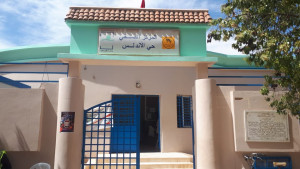
At the regional level, Regional Multi-Stakeholder Working Groups in Migration and Development developed under INDIMAJ will be further operationalized with the aim to foster and facilitate the dialogue among different actors and levels of territorial governance on migration including actors from civil society and regional councils. The programme will provide ongoing technical support tailored to the needs of these three Regional Councils and by ensuring the organization of periodical meetings and workshops in each target region, with the involvement of the MDCMRE to drive this process by defining clear Terms of Reference. These coordination mechanisms will support mainstreaming efforts in relevant policies and plans or the potential development of necessary new policies and plans in priority sectors. The Programme also promotes the existing inter-regional network to foster experience sharing on Migration and Development. This system will strengthen decentralized cooperation between Moroccan local authorities and help identify and/or establish integrated migration management strategies operating in several territories.
The local, regional and national authorities in Morocco also showcase their experiences, both in regional and global fora, as well as within the Programme’s global knowledge exchange activities. Through regional and global dialogues, such as the Global Forum on Migration and Development, Morocco promotes a global understanding of the potential benefits of well-managed migration for sustainable development. Similarly, Morocco engages in the Global Programme’s internal capacity building activities, sharing its experiences and learning from the 10 other Programme countries on topics such as diaspora engagement, migration and employment, migration data and more.
For more information, contact:
- Myriam Cherti, IOM Morocco, mcherti@iom.int
- Yassir Ben Adballoui, UNDP Morocco, yassir.benabdalloui@undp.org
